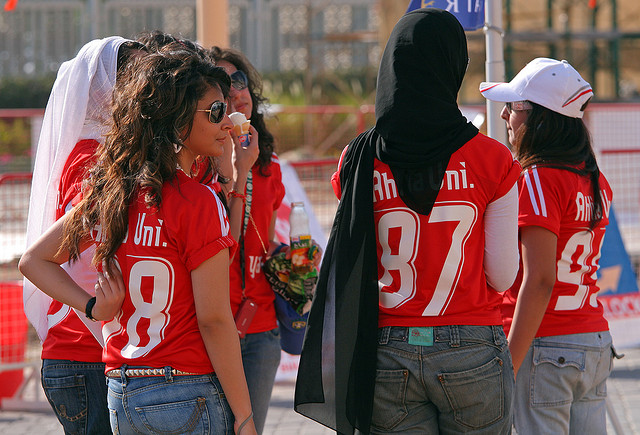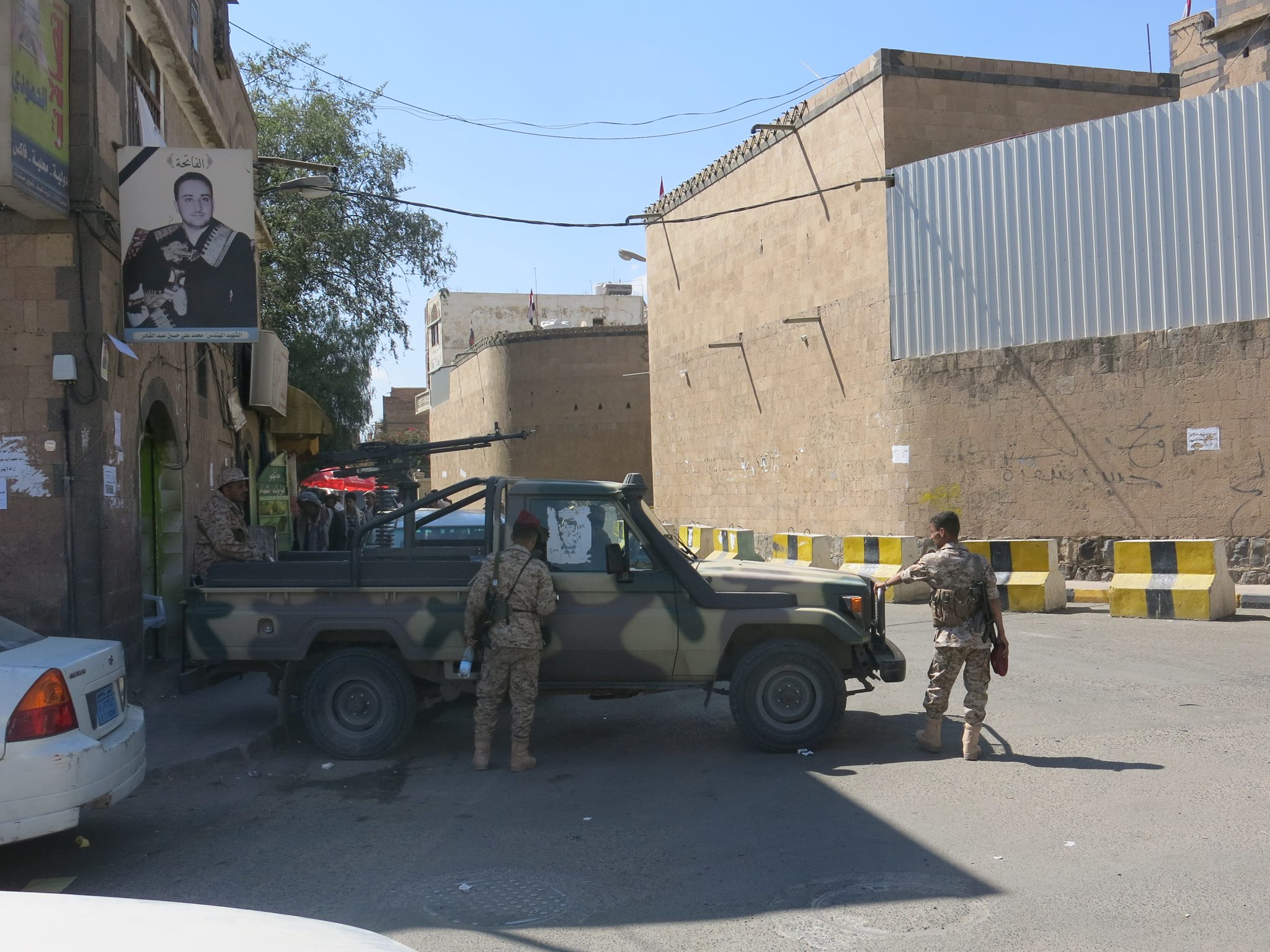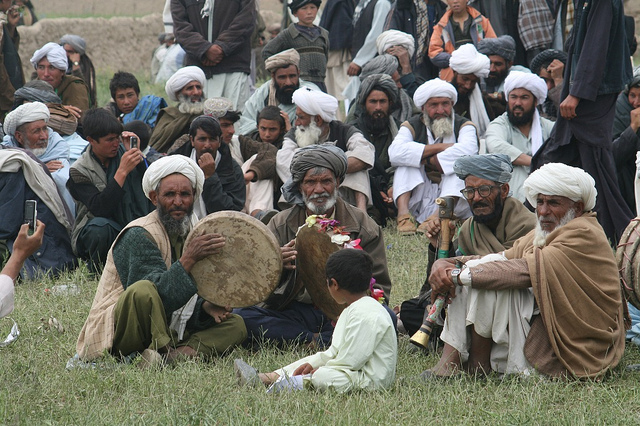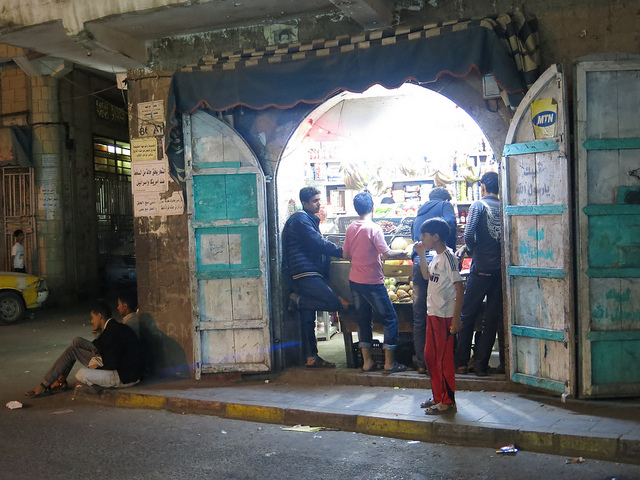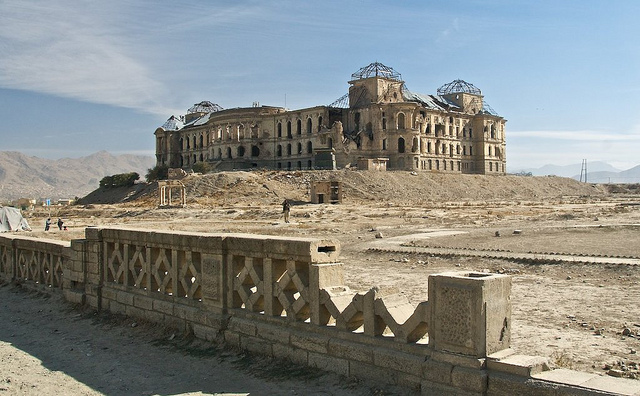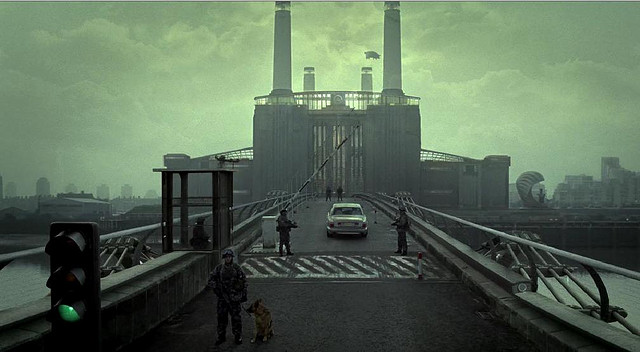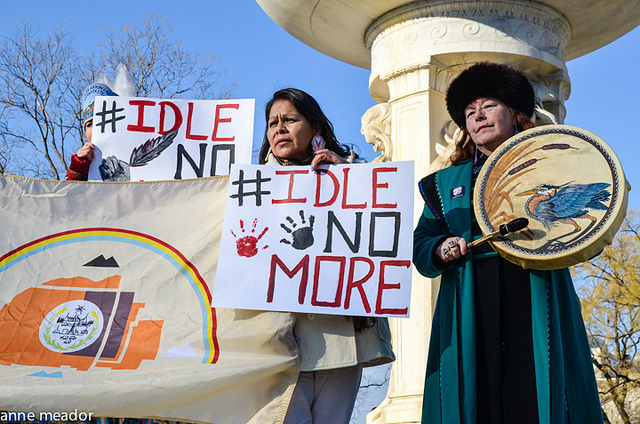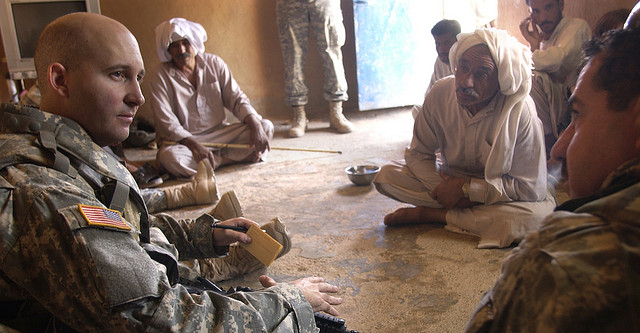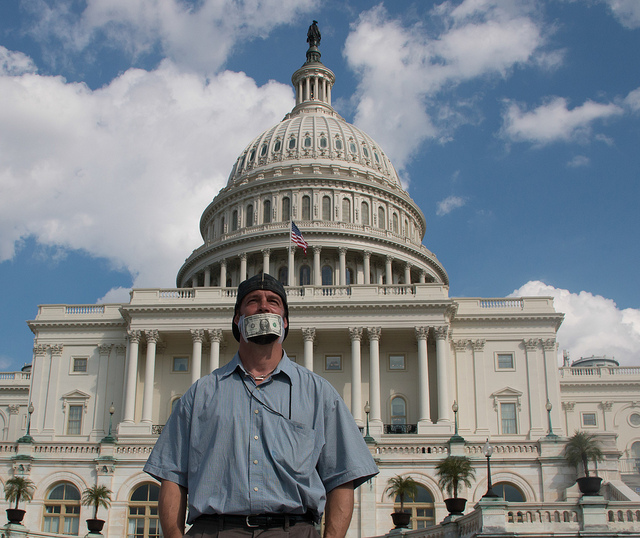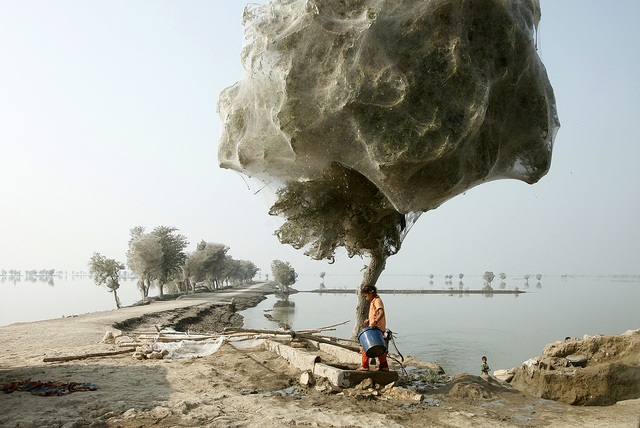I don’t “get” sex. And I’ve never liked talking to Americans about it. I never quite realized it until I talked to expatriates about sex out here in Sana’a. Expats have a habit of dominating every social conversation they have with their desperate yearning for being touched, which makes me wonder what is so great about it for them in the first place. (More…)
Author: Bilal AhmedBilal Ahmed is a writer and activist. He is currently preparing for his dissertation, which will compare tribal structures, and state relations, in Pakistan and Yemen.
Bilal Ahmed is a writer and activist. He is currently preparing for his dissertation, which will compare tribal structures, and state relations, in Pakistan and Yemen.
I took a photo while the soldiers weren’t looking, and posted it on Facebook. I saw something that looked familiar, as a Pakistani. It was on 26th of September Street in Sana’a. A truck with a machine gun, and three infantrymen, sat quietly. I titled it, “War in the City.” A teacher at my college commented, “Are you serious??” (More…)
I was speaking to my mother about democracy, expressing wariness about European models, which many Pakistanis associate with the Soviet-inspired experiments of the Afghan Communist era. I mentioned the jirga, as a way of envisioning direct democracy, in South Asian vernacular. She found it appealing. “That’s like the old days, people coming together to talk about their problems, that isn’t from the West,” my mum replied. (More…)
I’ve been living in Yemen for two weeks now. One of the reasons I have had difficulties adjusting to life here is because I’ve been trying to quit smoking. Few tasks are as hard in the Middle East. (More…)
I’d said that Afghanistan’s future had been ruined by naive leftists. The analysis visibly bothered one of my classmates. Perhaps it wasn’t as subtle as it could have been. I still stand by it. Afghan Communists blew it. Not just because their missteps allowed for foreign meddling. But also because they failed to understand democracy. (More…)
Chris Christie is bracing himself for what is likely a landslide re-election Tuesday. Almost on cue, another video has been circulating that portrays the governor at his most infamous: rude, and confrontational, against a schoolteacher who was critical of his education reform strategy. As analysts turn their attention to New Jersey, it’s important to evaluate how Christie got to this point, and why he’s so popular. (More…)
Alfonso Cuarón is one of Hollywood’s most important filmmakers. With the release of Gravity, it’s not hard to understand why. Cuarón’s direction, and Emmanuel Lubezki‘s cinematography, are stunning. Indeed, Gravity is as much its own cultural moment as Cuarón’s past features, including Y Tu Mamá También, and Children of Men. (More…)
There’s an extremely passionate debate circulating in Middle Eastern studies circles about an article by Sultan Sooud al-Qassemi. A noted analyst, al-Qassemi argues that Gulf cities have seized the mantle of “centers of the Arab world” from the traditional capitols of Cairo, Beirut, and Baghdad. (More…)
Idle No More is back. After a lull, the movement has been reinvigorated by a march at a shale gas field in Rexton, New Brunswick last week that turned violent. Now that discussions of the group are once again making headlines, it’s a perfect time to discuss what led to the movement’s creation, as well as how it functions within the broader context of Canadian multiculturalism. (More…)
Check out Paragh Khanna‘s new article, on the end of the nation-state. He makes a familiar argument: globalization has unleashed a devolution in state authority that will ultimately usher in new forms of governance. Although the piece has its problems, I’m most intrigued by how he foresees this playing out in the Middle East. (More…)
Throughout the shutdown, American media have repeatedly reminded us that there have been seventeen prior to this one. The suggestion is that shutdowns aren’t that big of a deal. The fact is that every one of them hurts the country. It’s time that the press presented the problem differently. (More…)
I just got off the phone with a Pakistani-American friend, who had just read a Facebook post of mine. He called me to ask if I could elaborate on the first sentence: “I have no patience for people in the Diaspora who say that Pakistan is finished.” I replied that I’m aggravated with how expats often give a desperate assessment of our country’s prospects. (More…)
